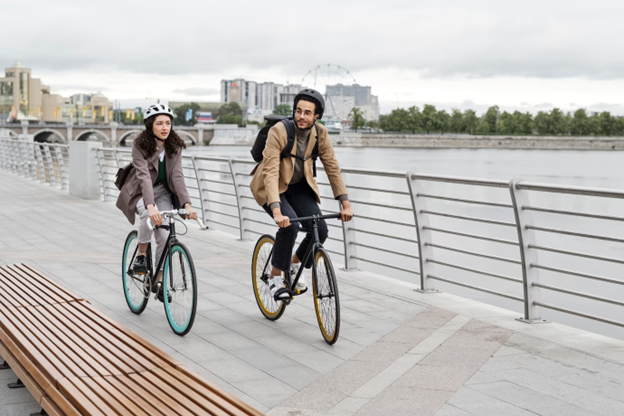
As an activity that’s been around for several centuries, it’s only normal that millions of people find cycling enjoyable and beneficial. Although the first bicycle was invented in 1817, the mass production of this useful mode of transportation has helped it skyrocket in recent years. So, how has the growing popularity of cycling impacted urban mobility and culture? Read on to learn more.
The growing popularity of cycling
Cycling is an activity that has been popular for a long while due to various health benefits. For example, it is a low-impact type of exercise that can vary in intensity. Some people do it simply because they enjoy the fresh air as they stroll around town. On the other hand, others like that this activity can help them lose weight, improve their balance and coordination, strengthen their legs, lower cholesterol, and boost their mental well-being.
That being said, the fact that cycling got even more popular during the outbreak of the coronavirus pandemic cannot be denied. Afraid of getting infected, more and more individuals decided to skip crowded buses and trams, and instead, they purchased bikes and started using them to reach their destinations. Moreover, as gyms were being closed left and right, people also needed a safe way to exercise, and cycling around the city or going off-road provided a great opportunity.
However, even with the pandemic winding down, cycling is going strong. During these three years, many people realized how useful riding their bike can be. There is no need to pay for gas and parking and there is no waiting in traffic. Additionally, getting in some exercise is a big plus, as not everyone likes going to gyms and lifting weights. This is also a great alternative as it can be done solo or in a group with friends and family members.
Still, not all people realize the big potential of cycling. For example, research shows that US residents see cycling as a recreational activity. Local governments should put more effort into promoting this mode of transportation as it comes with all the previously mentioned benefits. Furthermore, it can not only impact personal lives but the environment as well.
The impact of cycling on urban mobility and culture
For starters, anyone living in a larger city is aware of how big of a problem congestion can be. Mexico City, Bangkok, Los Angeles, Sydney, and Rio de Janeiro are just some of the cities that are seeing huge traffic daily and it’s not uncommon for people to sit in their car for hours on end until they can reach their destination. On the other hand, there are also cities where cars are not allowed at all. For example, while Venice and Giethoorn are completely car-free, cities like Dubrovnik and Ghent have areas that are closed to cars. To get around some of them, you need to use a bike, rent a boat, or walk.
It should also be mentioned that many cities are introducing grants and programs that would encourage residents to rely on bikes instead of on cars that not only congest streets but lead to pollution as well. These include providing residents with the funds necessary to purchase a bike and all the necessary safety equipment. What is more, local authorities need to look for ways to adjust the streets to cyclists.
For example, creating wider and separated bike lanes where cyclists can feel safe, making sure the traffic lights prioritize people traveling by bike and securing bike parking infrastructure are just some matters that should be taken into consideration. Additionally, as not everyone might have funds or get grants, cities can also look into bike hire services that will allow both residents and tourists to explore by bike instead of hiring taxis or renting cars. All of these points are especially important for cities that don’t have a developed public transportation system that includes buses and trams.
Cycling is a fun activity that is both good for the environment and beneficial for people’s health. Individuals as well as governments should start looking into the best ways of introducing cycling into their everyday routines.

